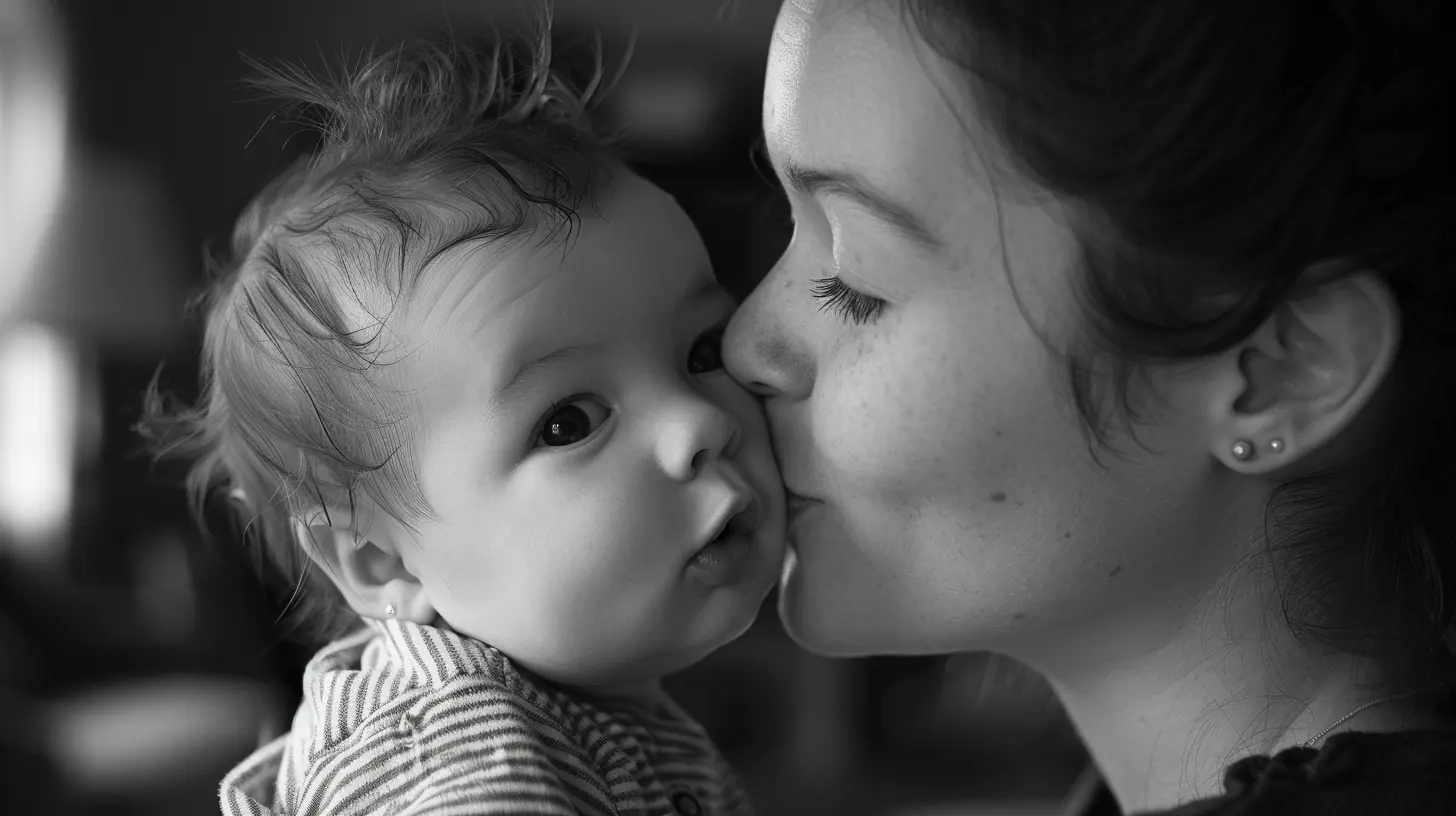The Science Behind Attachment Parenting: Why Emotional Availability Matters
17 April 2025
Parenting is a journey filled with love, challenges, and countless decisions that shape a child’s future. Among the many parenting styles, attachment parenting stands out for its emphasis on emotional connection and responsiveness. But what does science say about it? Why is emotional availability so crucial for a child’s development?
If you've ever wondered whether holding your baby "too much" could spoil them or if responding to every cry is really necessary, you're not alone. The truth is, attachment parenting isn't about indulgence—it's about fostering secure, emotionally resilient children. Let's dive into the science behind it!

What Is Attachment Parenting?
Attachment parenting is a philosophy that encourages strong emotional bonds between parents and children. Coined by Dr. William Sears, this approach is based on the idea that consistent emotional availability leads to secure attachment, which in turn fosters confidence, empathy, and emotional stability in children.At its core, attachment parenting includes principles like:
- Responding quickly and sensitively to a baby’s needs
- Breastfeeding or responsive bottle-feeding
- Co-sleeping or keeping babies close at night
- Babywearing (carrying infants in slings or carriers)
- Gentle discipline rather than harsh punishments
But does science back up these practices? Absolutely!

The Science of Attachment: Why Emotional Availability Matters
1. The Brain’s Development in Early Years
A baby’s brain is like a sponge, absorbing everything around them. Studies show that consistent emotional support in the first few years of life helps shape brain development.When a baby feels safe and cared for, their body releases oxytocin, also known as the “love hormone.” This hormone strengthens emotional bonding and reduces stress levels, helping the baby develop healthy emotional regulation as they grow.
On the flip side, babies who experience neglect or inconsistent caregiving often show higher levels of cortisol, the stress hormone. Prolonged exposure to cortisol can disrupt brain development, leading to emotional and behavioral struggles later in life.
2. Secure vs. Insecure Attachment
Attachment theory, developed by John Bowlby and Mary Ainsworth, categorizes attachment styles into secure and insecure attachments.- Secure Attachment: When caregivers respond consistently and lovingly, children learn to trust and feel safe in relationships.
- Insecure Attachment: When caregivers are inconsistent, emotionally distant, or unresponsive, children may develop anxiety, avoidance, or difficulty forming healthy relationships.
Children with secure attachments tend to be more confident, empathetic, and emotionally stable as they grow. They know they can rely on their caregivers, providing a strong foundation for future relationships.
3. Emotional Availability Lowers Stress & Anxiety
Imagine walking into a room full of strangers. If you have a trusted friend by your side, you feel safe. But if you're alone, anxiety kicks in. Babies feel the same way about their caregivers.Research shows that emotionally available parents help regulate their child’s stress responses. This means fewer tantrums, less anxiety, and better emotional control as they grow older.
Children who experience consistent emotional support are also less likely to suffer from mental health issues like depression and anxiety because they’ve learned that emotions are manageable and relationships are safe.
4. The Impact on Emotional Intelligence & Social Skills
One of the biggest benefits of attachment parenting is its effect on emotional intelligence. When parents model empathy, responsiveness, and emotional regulation, children mirror these behaviors.Studies show that children raised in emotionally attuned environments:
- Are better at understanding their own emotions
- Show more empathy toward others
- Have stronger communication and problem-solving skills
These skills don’t just boost childhood development—they contribute to healthy relationships and success in adulthood.

Common Myths About Attachment Parenting
Despite its scientific backing, attachment parenting has its fair share of misconceptions. Let’s clear up a few myths!Myth 1: “Attachment Parenting Spoils Children”
Reality: Responding to a child’s needs doesn’t spoil them—it builds trust. Studies confirm that children with secure attachments develop independence faster because they feel safe enough to explore the world on their own.Myth 2: “You Always Have to Say Yes”
Reality: Attachment parenting doesn’t mean permissive parenting. Gentle discipline is about teaching boundaries with respect and understanding, rather than punishment.Myth 3: “Attachment Parenting Only Works for Stay-at-Home Parents”
Reality: Working parents can absolutely be attachment parents! The key is quality over quantity—focusing on emotional warmth, even if time is limited.
How to Practice Emotional Availability in Everyday Parenting
Even if you’re not strictly following an attachment parenting approach, incorporating emotional availability into your parenting can make a world of difference. Here are some simple ways to do it:1. Respond to Your Child’s Needs Without Delay
If your baby is crying, respond promptly. If your toddler is upset, acknowledge their feelings. Babies and young children rely on their caregivers to help them process their emotions.2. Use Gentle Eye Contact & Physical Touch
Studies show that eye contact and physical affection stimulate oxytocin, strengthening the parent-child bond. A simple hug, a reassuring pat on the back, or making eye contact while talking can work wonders.3. Encourage Open Conversations
As children grow, they need space to express themselves. Encourage them to talk about their feelings without fear of judgment. Something as simple as “I see you're upset. Want to tell me about it?” can help them feel understood.4. Practice Mindful Parenting
It’s easy to get distracted by phones, work, or household chores, but even small moments of undivided attention—like playing together, reading a book, or simply cuddling—help build emotional security.5. Validate Their Feelings
Instead of dismissing your child's emotions (“You’re fine, stop crying”), validate their feelings (“I see you're upset. I’m here for you”). This teaches them that emotions are natural and okay to express.The Long-Term Benefits of Attachment Parenting
The effects of attachment parenting don’t just stop in childhood—they carry into adulthood. Securely attached children are more likely to:✅ Have higher self-esteem
✅ Form healthy relationships
✅ Handle stress and conflict effectively
✅ Show greater emotional intelligence
✅ Exhibit independence without fear
At the end of the day, emotional availability isn’t just about making babies happy—it’s about raising emotionally strong, confident adults.
Final Thoughts: Love, Not Perfection
Parenting isn’t about getting everything right; it’s about showing up, being present, and making your child feel safe, valued, and loved. Life gets busy, mistakes happen, and no parent is perfect—but emotional availability doesn’t require perfection.Simply being there—consistently, lovingly, and with an open heart—is what truly shapes a child’s emotional well-being.
So, the next time your little one reaches for you, don’t worry about spoiling them. Hold them close, reassure them, and let them know they are safe. Because, in the end, love and connection are what matter most.
all images in this post were generated using AI tools
Category:
Attachment ParentingAuthor:

Liam Huffman
Discussion
rate this article
5 comments
Valeris Sharpe
This article effectively highlights the crucial role of emotional availability in attachment parenting, emphasizing how responsive parenting fosters secure attachments that promote healthy emotional and social development in children.
May 12, 2025 at 2:34 AM

Liam Huffman
Thank you for your insightful comment! I'm glad you found the article emphasizes the importance of emotional availability in fostering secure attachments and healthy development.
Runevale Williams
Great insights! Thank you for sharing this valuable information.
April 30, 2025 at 2:29 PM

Liam Huffman
Thank you! I'm glad you found it valuable.
Hadley Wright
Great article! Understanding attachment parenting helps us nurture strong bonds—emotionally available parents create secure, happy kids!
April 28, 2025 at 4:20 AM

Liam Huffman
Thank you! I'm glad you found it helpful. Nurturing those bonds truly makes a difference in children's emotional well-being!
Zaid Hernandez
This article brilliantly underscores the critical role of emotional availability in attachment parenting. Understanding the science behind it empowers parents to forge deeper connections, fostering secure, resilient relationships with their children.
April 27, 2025 at 3:42 AM

Liam Huffman
Thank you for your insightful comment! I'm glad you found the article emphasizes the importance of emotional availability in fostering strong parent-child bonds.
Porter Bennett
This article beautifully highlights the importance of emotional availability in attachment parenting. Understanding how our responses shape our children's emotional well-being is crucial. It empowers us to create stronger bonds and fosters resilience. Thank you for providing such insightful information for parents navigating this rewarding journey!
April 18, 2025 at 2:33 PM

Liam Huffman
Thank you for your thoughtful comment! I'm glad you found the article insightful in addressing the vital role of emotional availability in attachment parenting.




